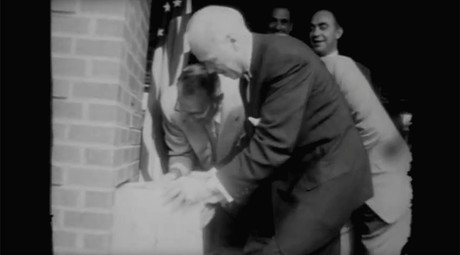The study, conducted by University College London and published in the Journal of Alzheimer’s Disease, questioned the relatives and friends of 48 frontotemporal dementia patients.
The respondents were asked to give examples of inappropriate humor exhibited by their loved ones over the last 15 years – well before any diagnoses. Almost all of the participants said they had noticed a shift in the nine years before their loved ones were diagnosed.
Many said their relatives had begun laughing at tragic events in the media or their personal lives. “These were marked changes – completely inappropriate humor well beyond the realms of even distasteful humor. For example, one man laughed when his wife badly scalded herself,” said Dr. Camilla Clark, who was involved in the study.
The wife that scalded herself said that “early on, [my husband] laughed very loudly at things that were only mildly funny, flippant or over the top; now [he will] laugh all the time at things that are not particularly funny and will say ‘I’m laughing and I’m not sure why I’m laughing.’”
Another person mentioned they had asthma, and that their loved one will “laugh sometimes when I am fighting to get my breath.”
Other changes in humor were less sinister, including laughing at a badly parked car or at a barking dog.
The study participants were also asked to rate their loved one’s liking of different types of entertainment: slapstick comedy such as Mr. Bean, satirical comedy such as Yes Minister or absurdist comedy such as Monty Python.
Dementia patients tended to prefer slapstick over satirical humor, with the study noting that relatives noticed a “shift in patients’ comedy preferences toward the fatuous and farcical” after their diagnoses.
READ MORE: ‘Super-smart mice’ might help cure Alzheimer’s and schizophrenia – study
One respondent noted that their loved one “used to be very witty but that has all gone; humor has to be more obvious, laughs if others laugh.” Another said their relative’s humor is now “very rude and graphic, everything is now ‘funny.’”
According to Clark, the study highlights “the need to shift the emphasis from dementia being solely about memory loss.”
Frontotemporal is one of the rarer forms of the disorder, but somewhat common in dementia sufferers under the age of 65. It affects an area of the brain, which is involved with personality and behavior, and often causes patients to lose their inhibition, become more impulsive, and struggle in social situations.
Source Article from https://www.rt.com/news/321500-twisted-humor-early-dementia/?utm_source=rss&utm_medium=rss&utm_campaign=RSS
Related posts:
Views: 0
 RSS Feed
RSS Feed

















 November 10th, 2015
November 10th, 2015  Awake Goy
Awake Goy 
 Posted in
Posted in  Tags:
Tags: 
















